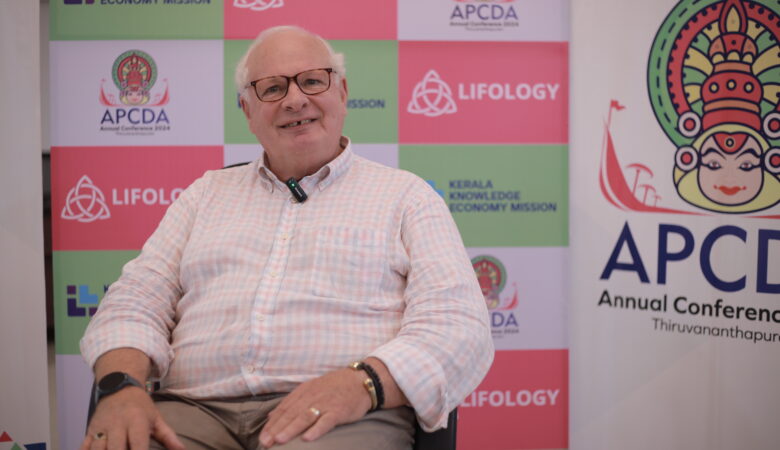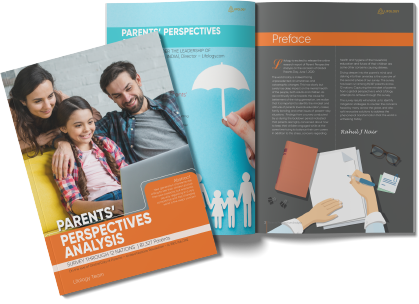Dr. Jennifer Wiseman, the senior astrophysicist at NASA’s Goddard Space Flight Center who has been the guiding force behind the Hubble Space Telescope for years, shares her insights on the cosmos, the iconic telescope, the wonders it has unveiled, her early life, and science careers, in exclusive interactions with Lifology.
Dr. Wiseman, you’ve dedicated your life to exploring the cosmos. Could you share some of the most exciting discoveries you’ve made through the lens of the Hubble Space Telescope, and how they’ve shaped your understanding of the universe?
It’s impossible to suppress the urge to look up at the sky, isn’t it? There’s something inherently captivating about the vast expanse above us. And when we peer into that expanse with tools like the Hubble Space Telescope, the images we see are simply breathtaking.
Take the stars, for instance. They’re not all the same colour, as Hubble reveals in its crystal-clear images. Each star has its own unique hue, a fingerprint of its temperature and composition. It’s like a cosmic kaleidoscope, and with Hubble, we get a front-row seat to this spectacle, unhindered by clouds or atmospheric disturbances.
The Hubble Space Telescope, operating for over 30 years now, has revolutionised our understanding of the universe. Its domain extends from the ultraviolet through the visible spectrum and into the near-infrared, allowing us to capture stunning images of stars, galaxies, and other astronomical wonders that have inspired people worldwide.
But Hubble is just one of many tools in our astronomical arsenal. Different telescopes offer different perspectives, enabling us to delve deeper into the cosmos and explore everything from the surface of the sun to the most distant galaxies.
Our universe is teeming with incredible planets, stars, and other celestial objects, each with its own story to tell. And as we uncover these stories, we realise just how vast and awe-inspiring our universe truly is.
Sometimes, this vastness can make us feel small and insignificant. But I see it differently. When I look up at the night sky, I feel a sense of connection, of belonging. It’s a reminder that we are part of something much larger than ourselves, something truly amazing.
Whether you’re an astronomer or not, you can share in the wonder of our universe. If you have the chance, escape the city lights and gaze up at the stars. Let their beauty fill you with awe and remind you of your place in this grand cosmic scheme. It’s an experience you won’t soon forget.
Your journey to becoming a leading astrophysicist is truly inspiring. Can you tell us a bit about your background and what sparked your interest in science?
I actually grew up in a rural part of America, on a farm. Unlike many of my colleagues, I didn’t have much exposure to formal science education as a child. My parents didn’t have the opportunity to attend university, so I’m the first generation in my family to pursue higher education.
But even without formal training, I was always incredibly curious about the natural world. I loved exploring the streams and forests around our farm, and I was fascinated by the night sky. I think that innate curiosity is what ultimately led me to a career in science. It was a way to explore the questions I had about the world and the universe around me.
Your work has taken you to the forefront of exploring the universe’s mysteries. Has this journey shaped your personal philosophy or outlook on life? What do you consider to be the essence of a fulfilling life, or what we might call “Lifology”?
The ability of science to delve into the vastness of the universe is truly awe-inspiring. For me, it’s a gift, a symbol of something greater than ourselves. It evokes a sense of wonder and appreciation, and for me, it reinforces the importance of empathy and caring for others.
In my view, “Lifology” is about recognizing our interconnectedness with the universe and with each other. It’s about sharing our knowledge and discoveries, not just in science but in every field. Whether you’re an engineer, a doctor, a teacher, or an artist, the joy of sharing what you’ve learned and seeing it uplift others is incredibly fulfilling.
I believe that approaching our careers with an attitude of service is key to a gratifying life. It’s about asking, “How can I use my skills and resources to make a positive impact?” This perspective can bring a deeper sense of meaning and purpose to our work.
Of course, it’s also important to remember that success isn’t everything. We need to be mindful not to let the pressure for achievement overshadow the simple joys of life. We should accept that there are things beyond our control and focus on appreciating the present moment.
And finally, relationships are the bedrock of a fulfilling life. We need to be thoughtful about the connections we nurture, and while it’s okay to make mistakes, it’s important to learn from them and choose our relationships wisely.
These are just a few thoughts on what makes life meaningful. Ultimately, “Lifology” is a personal journey, and I encourage everyone to explore what brings them joy and fulfilment.
Women in Space Week serves as an important reminder of the incredible contributions women have made to space exploration. However women still represent a small percentage of those who have ventured into space. In your experience, how do you see the gender gap in STEM fields evolving, and what are the key challenges and opportunities we face in achieving greater equity?
It’s true that we’ve made progress, and there are many talented women involved in space-related careers, myself included. However, we haven’t achieved full equity yet. We need to continue encouraging and supporting individuals, regardless of gender, to pursue careers in STEM fields.
One of the biggest challenges is addressing the cultural and societal barriers that can discourage young girls from pursuing science and engineering. These barriers can take many forms, from subtle biases to outright discrimination. It’s essential for parents, teachers, and mentors to create an environment where girls feel empowered to follow their passions and explore STEM fields without fear of judgement or limitations.
Another critical aspect is creating a work environment that is truly supportive and welcoming for women. This includes addressing issues like unconscious bias, ensuring equal pay for equal work, and providing adequate support for work-life balance, especially for those with families.
We need to foster a culture where both men and women can thrive in STEM careers, where they feel valued and respected for their contributions. It’s about creating a sense of belonging and ensuring that everyone has the opportunity to reach their full potential.
I was fortunate to have a supportive family, even though I grew up in a rural area. My teachers, school, and even my church community encouraged my interest in science. Everyone needs that kind of support system to overcome the challenges they may face.
We need both women and men in the science field to bring diverse perspectives and talents to the table. By working together, we can unlock new discoveries and innovations that will benefit all of humanity. The future of STEM is bright, and I’m confident that with continued effort, we can achieve a more equitable and inclusive environment for everyone
Space tourism is a hot topic these days, with several companies vying to make space travel accessible to the public. How do you envision the future of space tourism, and what impact do you think it will have on scientific research and discovery?
Space tourism is certainly getting a lot of attention, and I think it has the potential to revolutionise how we interact with space. While it’s currently quite expensive, I believe that as technology advances and competition increases, we’ll see the cost of space travel become more affordable, opening the door for more people to experience the wonders of space firsthand.
But space tourism isn’t just about thrill-seeking adventures. It also presents exciting opportunities for scientific research. Commercial space flights can offer a platform for conducting experiments in microgravity and other unique space environments, which could lead to new discoveries and innovations in various fields.
Of course, it’s important to remember that space travel is not without its risks. It’s not a leisurely activity, and there are inherent dangers involved. But with proper safety measures and regulations in place, I believe that space tourism can be a safe and rewarding experience for those who dare to venture beyond our planet.
A career in space science seems like a dream for many. What advice would you give to young people who are passionate about the cosmos and aspire to contribute to our understanding of the universe? What are the different career paths available, and how can one prepare for them?
There are so many different career paths that can lead to a fulfilling and impactful career in space science. It’s not just about being an astronaut, although that is certainly one exciting option! Space agencies like NASA need a diverse range of talent, from engineers and pilots to experts in robotics, data science, AI, and even administration and communication.
Think about it: the vast amounts of data streaming in from telescopes like Hubble require skilled data scientists and AI experts to process and analyse. We need talented programmers to develop the software that controls spacecraft and analyses data. And we need communicators, writers, and educators to share the excitement of discovery with the public.
It’s also important to remember that a career in space science isn’t limited to working at NASA. Many people work at universities, research labs, observatories, and even in the private sector, contributing to our understanding of the cosmos.
Jennifer Wiseman’s advice to young persons interested in astronomy:
- Focus on your STEM foundation: Start by building a strong foundation in science, technology, engineering, and mathematics (STEM). Pay attention to subjects like maths and physics, as they are fundamental to understanding the universe.
- Choose a relevant major: When you go to university, consider majoring in physics or a related field. This will provide you with the essential knowledge and skills needed for a career in space science.
- Seek out internships: Look for internship opportunities at space agencies, research labs, or universities. Even short-term experiences can give you valuable insights into the field and help you network with professionals.
- Pursue advanced degrees: Depending on your desired career path, you might consider pursuing a master’s or doctoral degree in a specialised field like astronomy, astrophysics, or planetary science.
- Stay informed and network: Keep up-to-date with the latest developments in space science by reading scientific journals and attending conferences. And don’t hesitate to reach out to professionals in the field, ask questions, and build your network.
Remember, the space science community is a collaborative one, and we’re always eager to welcome new talent into the fold.





